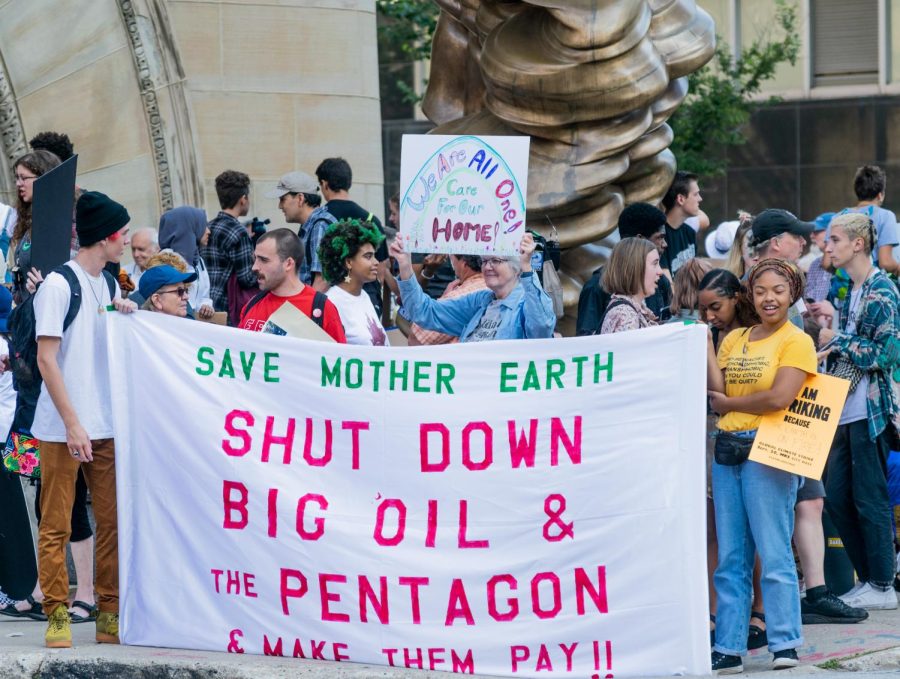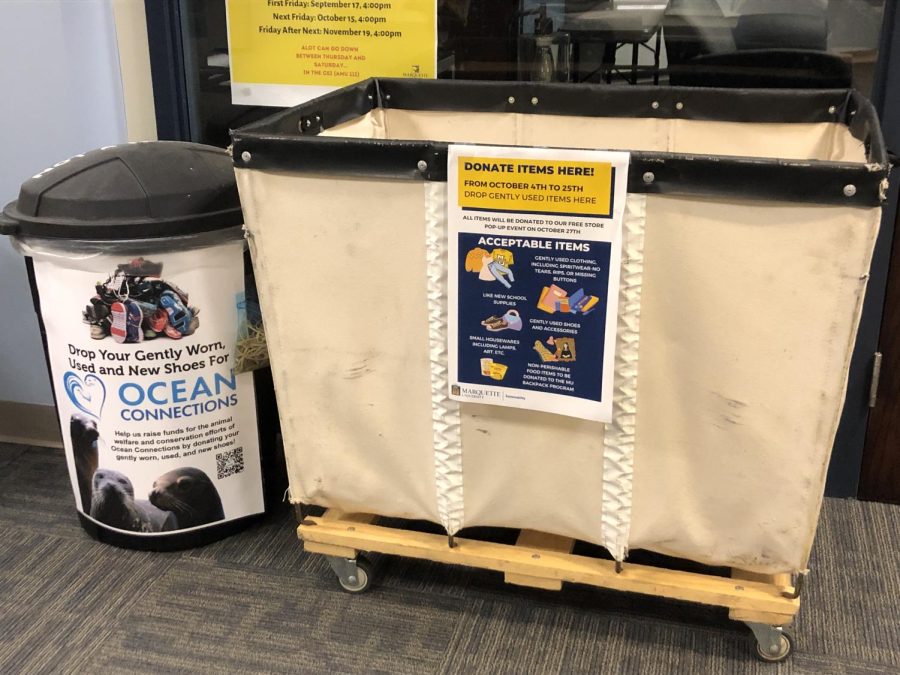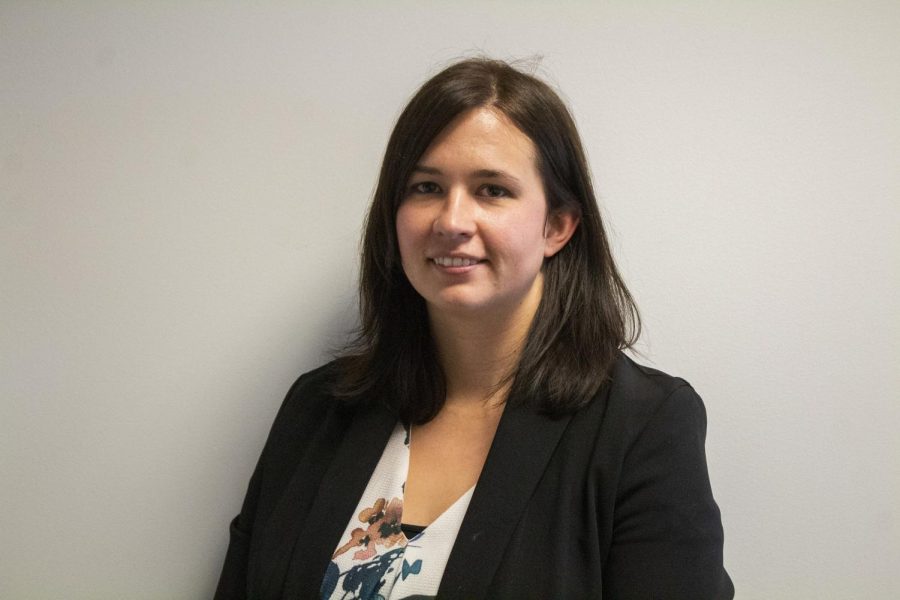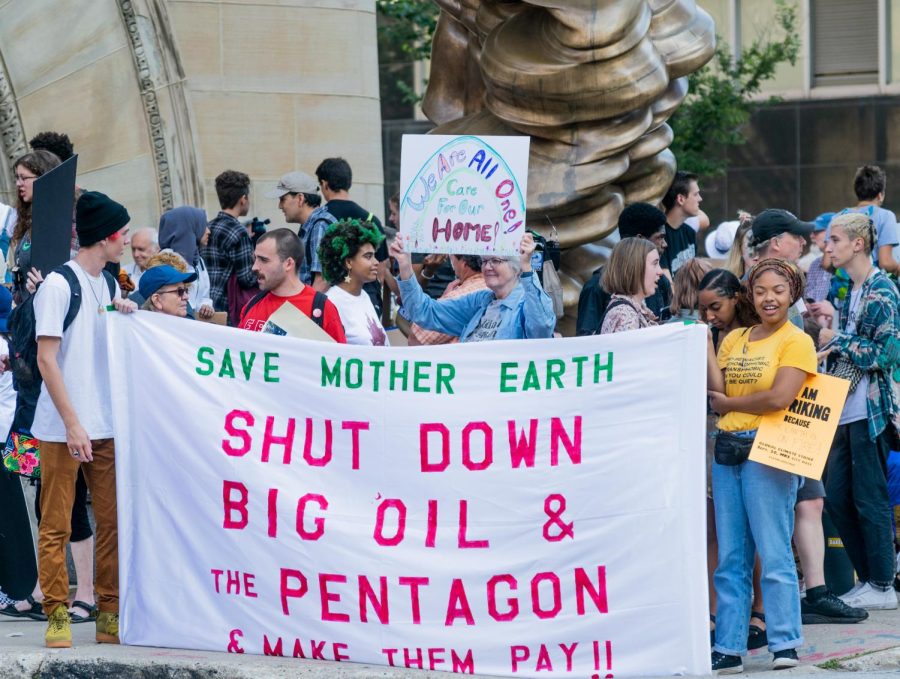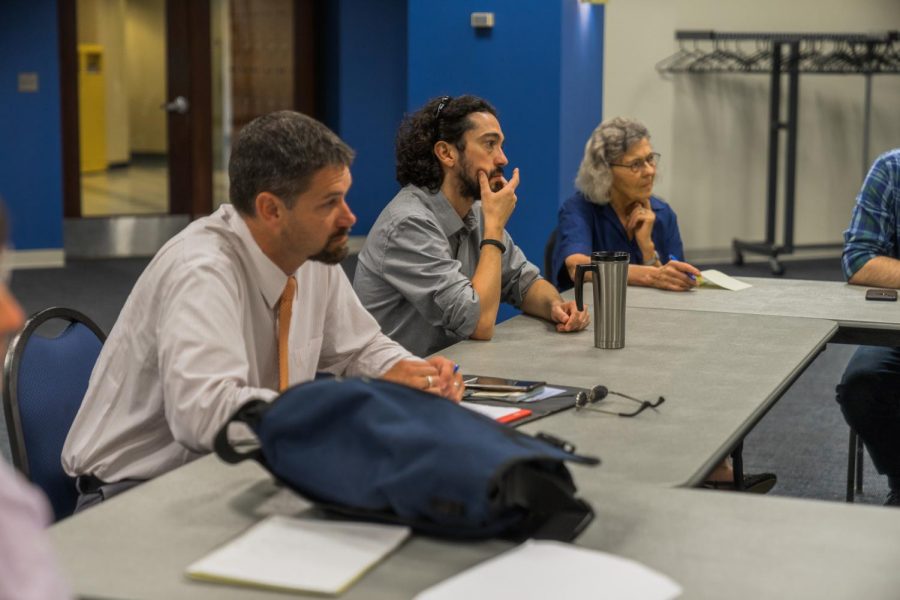While some students attended their final classes of the week Friday afternoon, others were east of campus, shouting.
“Hey hey, ho ho! Fossil fuels have got to go!” Laura Schmit, co-president of Students for an Environmentally Active Campus and a senior in the College of Arts & Sciences, joined the chants of dozens of other marchers as she walked with fellow club members in the Milwaukee Climate Strike.
The crowd, filling multiple blocks, congregated at Milwaukee City Hall before it began its three-mile walk to North Point Park.
The marchers in Milwaukee were not alone. Millions of protesters in towns and cities across the world gathered Friday for the Global Climate Strike, a movement started by young people angry with their politicians’ inaction on the current climate crisis.
“This is an issue that affects us all,” Schmit said as she waved a poster that read “Fight for our future!” She and other SEAC members made posters during their weekly meeting a few days prior to prepare for the protest.
Karaline Black, a co-president of SEAC and a senior in the College of Arts & Sciences, said the issue of climate change is a threat to future generations.
“I want the people that come after us to not have to deal with the repercussions of what we let happen,” she said.
One of the youngest groups present was a third grade class from Greenfield Bilingual School. As the students sat on the fountain at North Point Park, they held up their manilla folders and chanted the message written on them: “Save our future.”
Marion Lewandowski, a junior in the College of Arts & Sciences, said it was powerful to see the third graders making themselves present and known. She said she came out to the climate strike to support younger generations like that class.
“I wanted to stand in solidarity with my fellow youth in hopes to send a greater message to our politicians and older adults about climate change being a real issue that people my age and younger care about,” Lewandowski said.
Joseph Miscimarra, a member of SEAC and a junior in the College of Arts & Sciences, said he came to the protest because he is passionate about environmental justice.
“Environmental justice really overlaps with tons of social justice issues that we’ve seen around the world,” he said.
Miscimarra said he witnessed some of those injustices on a recent trip to Panama City, Florida, in May of this year, eight months after Hurricane Michael hit the area. He said the category five storm greatly damaged communities and nature in the Florida Panhandle.
Miscimarra echoed what many at the strike agreed on: the climate crisis is being perpetuated by the fossil fuel industry. He said investing in the fossil fuel industry is not sustainable and is a major issue at bigger institutions like Marquette.
“Marquette hasn’t announced that they’ve divested from fossil fuels, which likely indicates that they are invested in fossil fuels,” he said. “They are indirectly contributing to the fossil fuels industry, which means that they are contributing to the climate crisis.”
Miscimarra joined a group of students after the strike to take the demonstration to campus. He and other students stood outside Zilber Hall, holding signs and chanting to raise awareness for climate change.
The group demanded that the university divest from industries like fossil fuels and also repeal its demonstration policy, which has been a recent subject of debate on campus.

